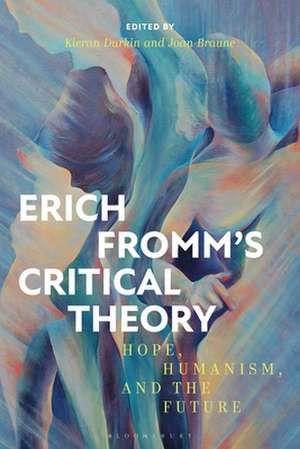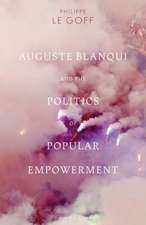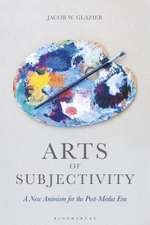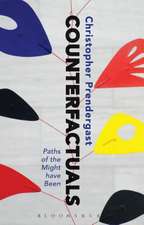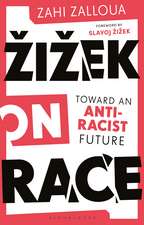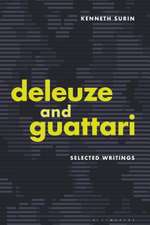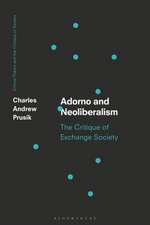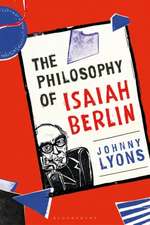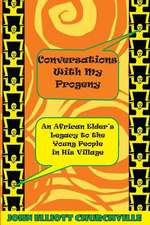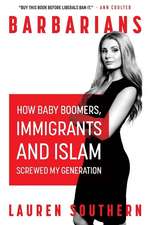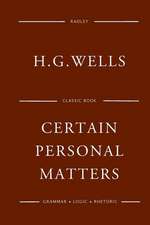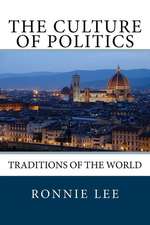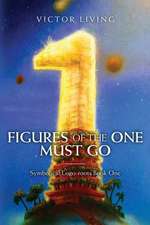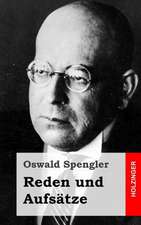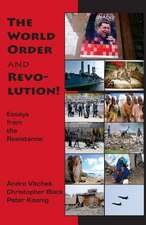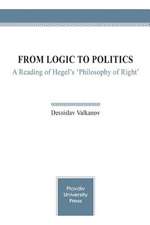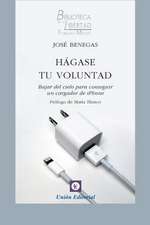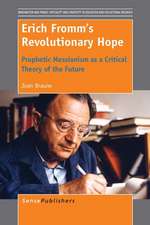Erich Fromm's Critical Theory: Hope, Humanism, and the Future
Editat de Kieran Durkin, Joan Brauneen Limba Engleză Paperback – 20 oct 2021
| Toate formatele și edițiile | Preț | Express |
|---|---|---|
| Paperback (1) | 217.62 lei 6-8 săpt. | |
| Bloomsbury Publishing – 20 oct 2021 | 217.62 lei 6-8 săpt. | |
| Hardback (1) | 598.35 lei 3-5 săpt. | |
| Bloomsbury Publishing – 15 apr 2020 | 598.35 lei 3-5 săpt. |
Preț: 217.62 lei
Preț vechi: 274.87 lei
-21% Nou
Puncte Express: 326
Preț estimativ în valută:
41.64€ • 43.48$ • 34.46£
41.64€ • 43.48$ • 34.46£
Carte tipărită la comandă
Livrare economică 04-18 aprilie
Preluare comenzi: 021 569.72.76
Specificații
ISBN-13: 9781350279148
ISBN-10: 1350279145
Pagini: 248
Dimensiuni: 156 x 234 mm
Greutate: 0.35 kg
Editura: Bloomsbury Publishing
Colecția Bloomsbury Academic
Locul publicării:London, United Kingdom
ISBN-10: 1350279145
Pagini: 248
Dimensiuni: 156 x 234 mm
Greutate: 0.35 kg
Editura: Bloomsbury Publishing
Colecția Bloomsbury Academic
Locul publicării:London, United Kingdom
Caracteristici
The rise in right-wing populism is driving a renewed interest in Fromm, who dealt with authoritarian capitalism in depth
Notă biografică
Joan Braune is Lecturer in Philosophy at Gonzaga University, USA. She is author of Erich Fromm's Revolutionary Hope: Prophetic Messianism as a Critical Theory of the Future (2014).Kieran Durkin is Lecturer in Social and Political Theory at the University of York. He is author of The Radical Humanism of Erich Fromm (2014) which was shortlisted for the Philip Abrams Memorial Award.
Cuprins
Introduction'Mapping Fromm's Critical Theory' - Kieran Durkin, Lecturer in Social and Political Theory at the University of York, UKPart I: Radical and Prophetic HumanismChapter 1: 'Fromm's Social Ontology and the Ethical Framework of Critical Theory', Michael Thompson, Professor of Political Science, William Paterson University, USA Chapter 2: 'Jewish Messianism and Revolutionary Utopias in Central Europe: Erich Fromm's Early Writings (1922-1930)', Michael Löwy, Research Director, Centre National de la Recherche Scientifique (CNRS), Paris, FranceChapter 3: 'The Necessity of Progressive Religion to Foment Progressive Change: A Frommian Argument", George Lundskow, Professor of Sociology, Grand Valley State University, USAPart II: Social and Psychological AspectsChapter 4: 'Erich Fromm and the Prospects for Renewing Critical Theory in the Neoliberal Era', Roger Foster, Associate Professor of Philosophy, Borough of Manhattan Community College, CUNY, USAChapter 5: 'Fromm, Feminist Theory and the Psychosocial: From Sadomasochism to Mutual Recognition', Lynn Chancer, Professor of Sociology, Hunter College and The Graduate Center, CUNY, USA Chapter 6: 'Sociopsychoanalysis and Radical Humanism: A Fromm-Bourdieu Synthesis', Michael Maccoby and Neil McLaughlin, Professor of Sociology, McMaster University, CanadaPart III: Authoritarianism and the FutureChapter 7: 'Anti-Authoritarian Marxism: Erich Fromm, Hilde Weiss, and the Politics of Radical Humanism', David Smith, Professor of Sociology, University of Kansas, USA Chapter 8: 'Escape from Reflexivity: Fromm and Giddens on Individualism, Anxiety, and Authoritarianism', Charles Thorpe, Professor of Sociology, University of California San Diego, USA Chapter 9: 'Social Character, Social Change and the Social Future', Lauren Langman, Professor of Sociology, Loyola University, USA and George Lundskow, Professor of Sociology, Grand Valley State University, USAConclusion'Why Anti-Fascism Needs Erich Fromm's Critical Theory' Joan Braune, Lecturer in Philosophy at Gonzaga University, USA Index
Recenzii
An exceptional collection of essays which succeed in demonstrating the power of Fromm's scholarship and the relevance of his conceptual apparatus for furthering contemporary social research. This volume is an indispensable contribution to the booming Fromm renaissance.
[T]he reading experience resembles that of looking at a mosaic: it provides us with a particular selection of themes in Fromm's works, which - without claiming to be exhaustive in any way - gradually composes a larger picture from the smaller juxtaposed segments.
Durkin and Braune have put together a fine volume of essays on the legacy of Erich Fromm. This brilliant collection contributes to the international discussion of Fromm's legacy to demonstrate how much it has to teach us in our struggle to confront contemporary challenges. It is provocative, unorthodox, and generates reflection about one of the great figures in the history of philosophy and Frankfurt school critical theory.
Erich Fromm's Critical Theory: Hope, Humanism, and the Future, edited by Kieran Durkin and Joan Braune provides the best collection of essays that I have read on Erich Fromm and his importance for critical theory, social psychology, politics, and education. The essays cover a wide range of topics by top scholars in the field and are essential reading for those interested in Erich Fromm and his relationship to Frankfurt School Critical Theory, the themes of fascism, and authoritarianism, and a wide array of topics in social psychology.
Both the rise of rightwing authoritarianism, and the surge of interest in Marx's critique of the very capitalism that helped to produce that authoritarianism, have made Erich Fromm more relevant than ever. As the wide-ranging essays in this volume show, Fromm's searing Marxist humanist critique of modern capitalist civilization, which transcended the psychological/social and secular/religious divides, offers a refreshing contrast, not only to the tepid efforts of recent German critical theory, but also to the radical but academically cloistered writings of some of his erstwhile Frankfurt School colleagues.
[Erich Fromm's Hopeful Humanism] is compelling and an important addition to Frommian research.
[T]he reading experience resembles that of looking at a mosaic: it provides us with a particular selection of themes in Fromm's works, which - without claiming to be exhaustive in any way - gradually composes a larger picture from the smaller juxtaposed segments.
Durkin and Braune have put together a fine volume of essays on the legacy of Erich Fromm. This brilliant collection contributes to the international discussion of Fromm's legacy to demonstrate how much it has to teach us in our struggle to confront contemporary challenges. It is provocative, unorthodox, and generates reflection about one of the great figures in the history of philosophy and Frankfurt school critical theory.
Erich Fromm's Critical Theory: Hope, Humanism, and the Future, edited by Kieran Durkin and Joan Braune provides the best collection of essays that I have read on Erich Fromm and his importance for critical theory, social psychology, politics, and education. The essays cover a wide range of topics by top scholars in the field and are essential reading for those interested in Erich Fromm and his relationship to Frankfurt School Critical Theory, the themes of fascism, and authoritarianism, and a wide array of topics in social psychology.
Both the rise of rightwing authoritarianism, and the surge of interest in Marx's critique of the very capitalism that helped to produce that authoritarianism, have made Erich Fromm more relevant than ever. As the wide-ranging essays in this volume show, Fromm's searing Marxist humanist critique of modern capitalist civilization, which transcended the psychological/social and secular/religious divides, offers a refreshing contrast, not only to the tepid efforts of recent German critical theory, but also to the radical but academically cloistered writings of some of his erstwhile Frankfurt School colleagues.
[Erich Fromm's Hopeful Humanism] is compelling and an important addition to Frommian research.
